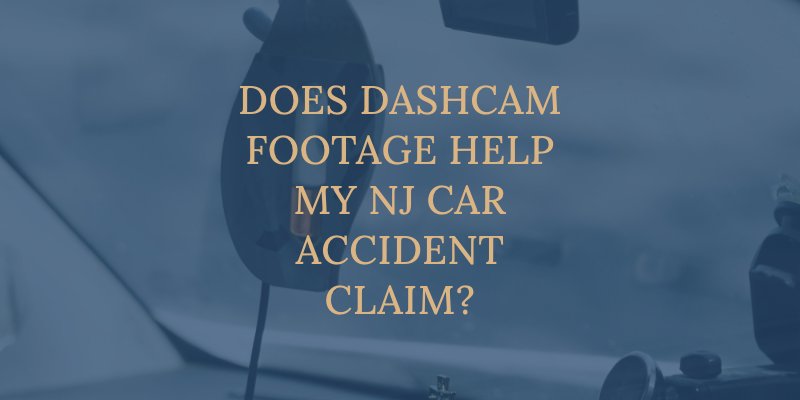Does Dashcam Footage Help My NJ Car Accident Claim?

A car accident is a traumatic event that can happen in the blink of an eye. If the crash is recorded with a dashboard camera or dashcam, however, the footage can be rewatched and reviewed to analyze exactly how and why the collision occurred. If used correctly, dashcam footage could significantly help your New Jersey car accident case. Make sure to speak with a New Jersey car accident lawyer for legal guidance.
New Jersey’s No-Fault Law
New Jersey is a no-fault car insurance state. This means when a car accident takes place, those involved will seek compensation from their own automobile insurance companies, regardless of who is at fault. If your claim value exceeds the limits of your personal injury protection (PIP) coverage, however, you may need to rely on evidence such as dashcam footage to bring a claim against another party.
The Role of Dashcam Footage in a NJ Car Accident Case
A dashcam is a small camera installed on a motor vehicle’s dashboard or windshield. It faces out toward the road, capturing footage of events (and accidents) in real time. Some may also face into the cab or behind the vehicle.
By capturing a recording of an automobile accident, a dashcam can offer objective, unbiased details about who is at fault. A dashcam may record a driver violating a traffic law, for example, or show proof of dangerous road conditions at the time of the accident.
When it comes to filing a New Jersey car insurance claim or going to court in pursuit of justice in the aftermath of a car accident, the value of dashcam footage as evidence cannot be overstated. It can help prove fault, combat the comparative negligence defense (an insurance company trying to shift the blame to you), and protect your financial payout.
When Is Dashcam Footage Admissible in a New Jersey Car Accident Claim?
Dashcam footage can provide crucial, game-changing evidence to support your car accident claim in New Jersey. To be considered admissible as evidence, however, the video recording must meet the following standards:
- Authentic: the footage must be real and unedited. It cannot be altered or tampered with. It should be clear, with no filters or obstructions.
- Relevant: the dashcam footage must show something that is relevant to a material fact of the case, such as a driver breaking a traffic law leading up to the accident.
- Lawful: if dashcam footage illegally recorded a conversation inside the cab of a vehicle without the permission of those involved, it can be ruled as inadmissible.
Ideally, the footage will also be timestamped for proof and clarity. As long as the footage meets these criteria, it can typically be admitted as evidence during a New Jersey car accident case.
What to Do With Dashcam Footage of a Car Accident
If you or another motorist has dashcam footage of a car accident in New Jersey, it can serve your needs as a key type of evidence. It can support your version of events, help you combat false accusations and prove your claim against another driver. This can lead to greater financial compensation for your medical bills, property repairs, pain and suffering, and more.
Be sure not to alter or delete the original video file. Save copies of the dashcam footage in multiple locations to be safe. If you plan on introducing dashcam footage as evidence for a New Jersey car accident case, take the video file to a car accident lawyer near you before handing it over to an insurance company. Your New Jersey personal injury attorney can handle the submission to ensure that the dashcam footage is presented properly.
